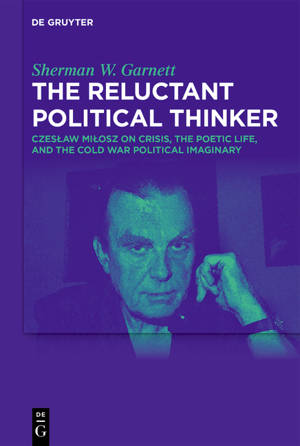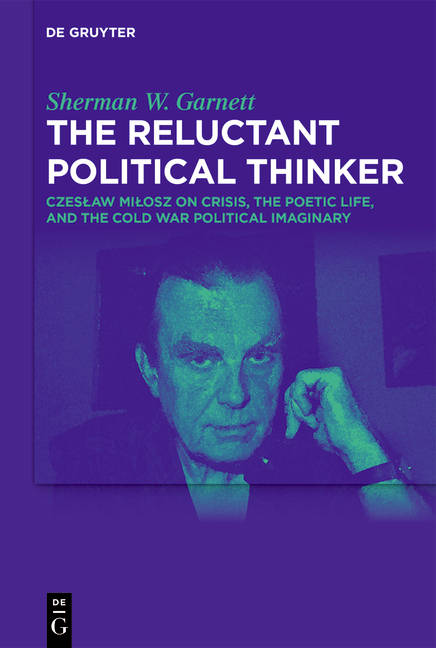
- Afhalen na 1 uur in een winkel met voorraad
- Gratis thuislevering in België vanaf € 30
- Ruim aanbod met 7 miljoen producten
- Afhalen na 1 uur in een winkel met voorraad
- Gratis thuislevering in België vanaf € 30
- Ruim aanbod met 7 miljoen producten
The Reluctant Political Thinker
Czeslaw Milosz on Crisis, the Poetic Life, and the Cold War Political Imaginary
Sherman W GarnettOmschrijving
Czeslaw Milosz was a poet and public writer for almost eight decades, and still remains a tremendous figure in world literature four decades after he won the Nobel Prize and two decades after his death. Milosz saw himself as an artist flying above the political fray, but he left the building blocks for an analysis of his political and social thought in plain sight. In this book, Sherman Garnett explores this crucial, neglected aspect of Milosz's thinking by closely studying a wide range of his Polish and English writings, arguing that he held a unique, nuanced political philosophy. Milosz's observations on totalitarianism and democracy, dissent, emigration, the United States and Soviet Union, and the "great crisis of civilization" fit coherently into his overall artistic project, and offer valuable insights for contemporary global social, humanitarian, and ecological challenges. This original book contributes to ongoing scholarly debates and offers the first full account of Milosz as a political thinker.
Specificaties
Betrokkenen
- Auteur(s):
- Uitgeverij:
Inhoud
- Aantal bladzijden:
- 210
- Taal:
- Engels
Eigenschappen
- Productcode (EAN):
- 9783111573526
- Verschijningsdatum:
- 2/06/2025
- Uitvoering:
- Hardcover
- Formaat:
- Genaaid
- Afmetingen:
- 155 mm x 230 mm

Alleen bij Standaard Boekhandel
Beoordelingen
We publiceren alleen reviews die voldoen aan de voorwaarden voor reviews. Bekijk onze voorwaarden voor reviews.











